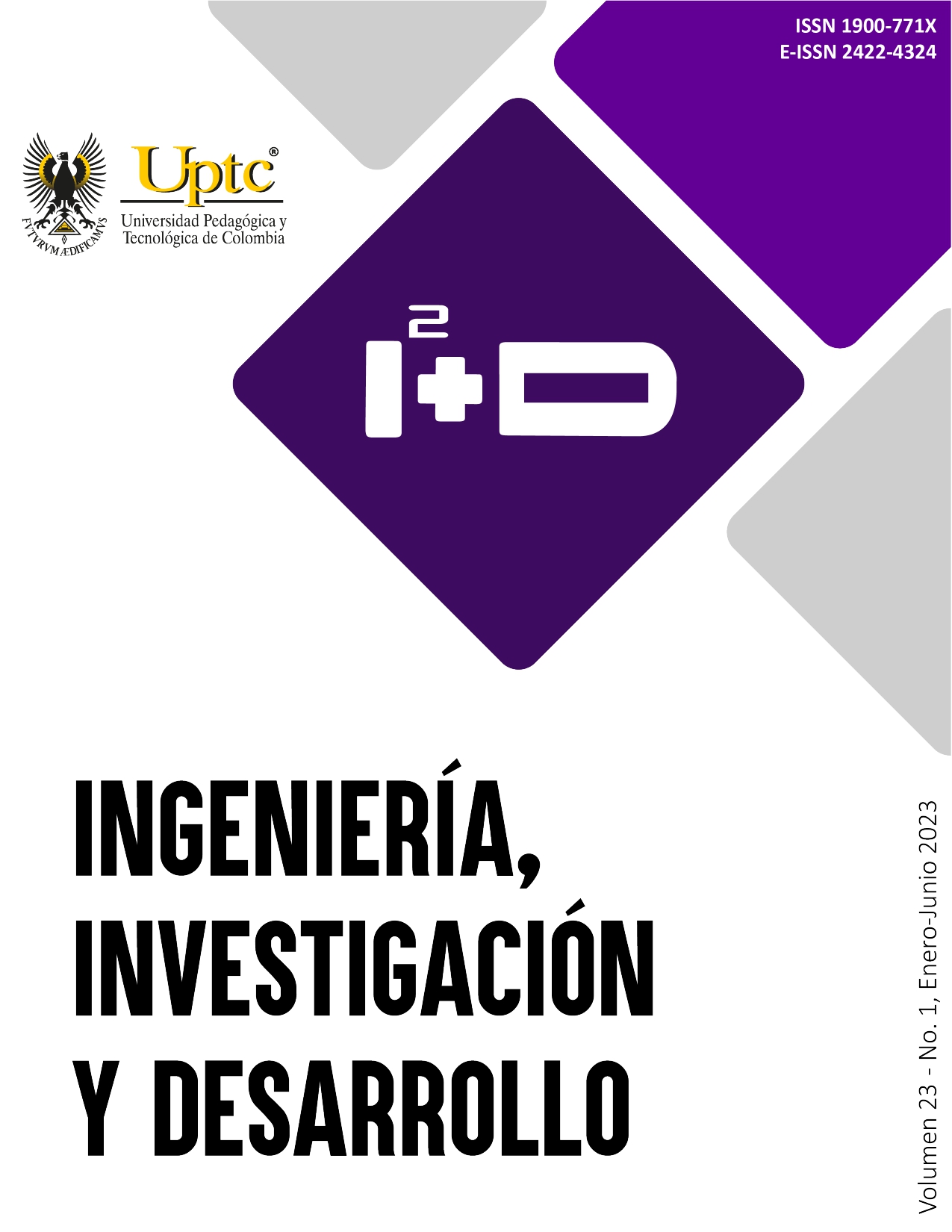METHODOLOGY FOR SUSTAINABILITY ANALYSIS FOR THE ENERGY SECTOR: THE CASE OF LPG AS REPLACEMENT FOR FIREWOOD IN RURAL HOUSEHOLDS IN COLOMBIA

Resumo
In this paper we provided a sustainability analysis for the LPG energy sector in Colombia using different methodologies: analysis of primary and secondary sources of normative documents; programmatic and regulatory framework of LPG; a study on the current tax burden of fuel gas subsidies; scenarios for the expansion of LPG subsidies; a socio-environmental sensitivity analysis; identification of relevant territorial factors to make prioritization recommendations in the replacement of firewood by LPG in specific areas; LPG emissions estimations as a strategy for replacing firewood in rural homes and the analysis of the economic sustainability of the business using different indicators. The research begins with a brief introduction which describe and highlights the importance of analyzing studies of natural gas and LPG in Colombia. The first section briefly exposes the theoretical and conceptual framework that supports the research. The second section presents the methodology used for each of the analysis topics. The third section shows some of the results achieved during the investigation and the main conclusions. Finally, we provide a series of reflections and insights for sustainability research where the dialogue of knowledge and multidisciplinary is encouraged.
Palavras-chave
Sostenibilidad, transición energética, metodología, sector energético, GLP, leña, combustible patra cocción
Biografia do Autor
Belen Silveira
Kuenka Asesorías Geológicas S.A.S, Bogotá, Colombia
Referências
- Departamento Nacional de Planeación (DNP).“PROGRAMA PARA LA MASIFICACIÓN DEL CONSUMO DE GAS”. Santafé De Bogotá, 1991. Available at: https://colaboracion.dnp.gov.co/CDT/ Conpes/Econ%C3%B3micos/2571.pdf
- Departamento Administrativo Nacional de Estadística (DANE).“Encuesta Nacional Calidad de Vida 2018”. May 2023. https://www.dane.gov.co/index.php/estadisticas-por-tema/salud/calidad-devida-ecv/encuesta-nacional-de-calidad-de-vidaecv-2018
- UPME, “Proyección demanda energía eléctrica, gas natural y combustibles líquidos 2022-2036”, 2022. Available at: https://www1.upme.gov.co/DemandayEficiencia/Documents/Presentacion_Proyeccion_demanda_energeticos_2022.pdf
- Caradonna, J. “Introduction” in Sustainability: A History. Oxford University Press: New York, 2014 pp. 1-5. DOI: https://doi.org/10.1093/oso/9780199372409.003.0004
- Johnston, P. Everard M, Santillo, D. and Robèrt K. “Reclaiming the definition of sustainability.” Environ Sci Pollut Res Int. 2007 Jan; 14(1):60-6. DOI: 10.1065/espr2007.01.375
- Bell, S. and Morse, S. “Sustainability and Sustainability Indicators” in Sustainability indicators: measuring the immeasurable? Earthscan: London, Sterling, VA, 2012. pp. 3-10. https://doi.org/10.4324/9781849772723
- Ruggerio, C “Sustainability and sustainable development: A review of principles and definitions”, Science of The Total Environment, Volume 786. 2021. DOI: https://doi.org/10.1016/j.scitotenv.2021.1474
- Robèrt, K. H., Daly, H., Hawken, P., & Holmberg, J. “A compass for sustainable development” The International Journal of Sustainable Development & World Ecology, Vol4 pp.79-92, 1997. DOI: https://doi.org/10.1080/13504509709469945
- IPCC “Summary for Policymakers.” In: Climate Change and Land: an IPCC special report on climate change, desertification, land degradation, sustainable land management, food security, and greenhouse gas fluxes in terrestrial ecosystems [P.R. Shukla, J. Skea, E. Calvo Buendia, V. MassonDelmotte, H.- O. Pörtner, D. C. Roberts, P. Zhai, R. Slade, S. Connors, R. van Diemen, M. Ferrat, E. Haughey, S. Luz, S. Neogi, M. Pathak, J. Petzold, J.
- Portugal Pereira, P. Vyas, E. Huntley, K. Kissick, M. Belkacemi, J. Malley, (eds.)]. 2019, pp. 1-36. DOI: https://doi.org/10.1017/9781009157988.001
- IEA. “Announced net zero pledges and the energy sector” in Net Zero by 2050, IEA, Paris, 2021. Available at: https://www.iea.org/reports/net-zeroby-2050
- Robert U. Ayres, “Technological transformations and long waves. Part I”, Technological Forecasting and Social Change, Volume 37, Issue 1, pp. 1-37, March 1990. DOI: https://doi.org/10.1016/0040-1625(90)90057-3
- WEF, Energy Transition 101: Getting back to basics for transitioning to a low-carbon economy. 2020 Available at: https://www3.weforum.org/docs/WEF_Energy_Transition_101_2020.pdf
- Smil, V. “Fossil-Fueled Civilization.” in Energy and Civilization: A History, REV-Revised, 2, The MIT Press, 2017, pp. 295–384. DOI: https://doi.org/10.7551/mitpress/10752.001.0001
- Hafner, M. and Tagliapietra, S. “The Global Energy Transition: A Review of the Existing Literature” in The Geopolitics of the Global Energy Transition Hafner, M. & Tagliapietra, S, Ed. Lecture Notes in Energy, Volume 73 pp. 1-20 2020. https://doi.org/10.1007/978-3-030-39066-2_1
- Henderson, J. and Sen, A. The Energy Transition: Key challenges for incumbent and new players in the
- global energy system. Oxford Institute for Energy Studies, [online] pp. 8-23, 2021. Available at: https://a9w7k6q9.stackpathcdn.com/wpcms/wpcontent/uploads/2021/09/Energy-Transition-Keychallenges-for incumbent-players-in-the-globalenergy-system-ET01.pdf
- Mercure, J, Pollitt, H., Viñuales, J. et al. “Macroeconomic impact of stranded fossil fuel assets.” Nature Clim Change 8, 588–593 June, 2018. DOI: https://doi.org/10.1038/s41558-018-0182-1
- Goldthau, A., Eicke, L. and Weko, S. “The Global Energy Transition and the Global South.” In The Geopolitics of the Global Energy Transition. Lecture Notes in Energy Cham: Springer International Publishing. 2020, pp. 319-339. DOI: https://doi.org/10.1007/978-3-030-39066-2_14
